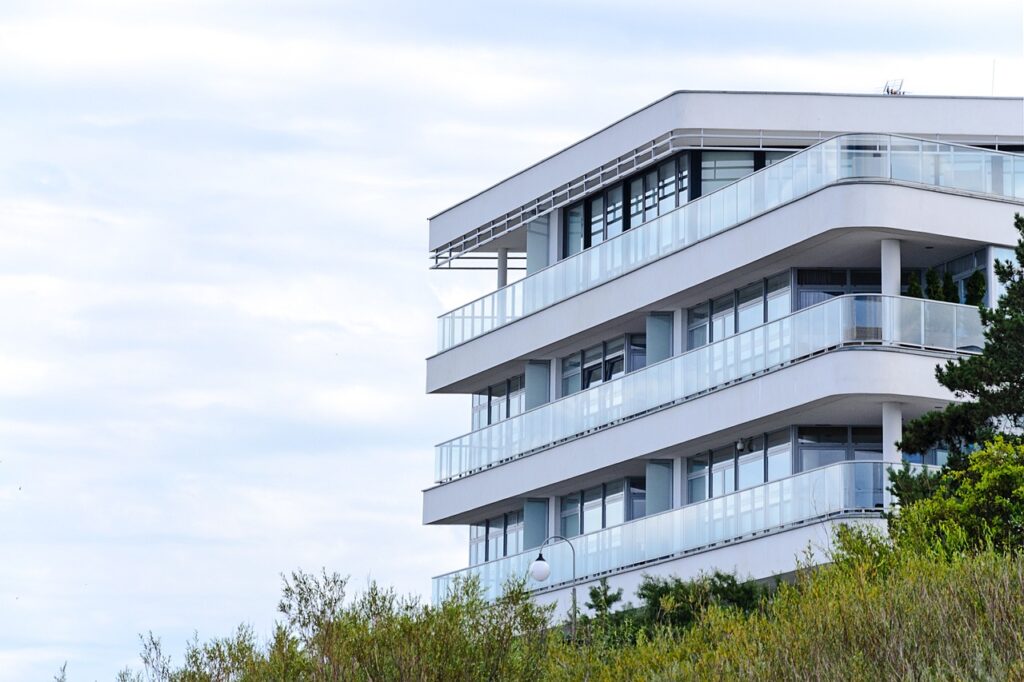Urban living presents a myriad of housing options, and two prevalent choices are condos and apartments. These options differ not only in ownership structure but also in amenities, costs, and community dynamics. In this exploration, we’ll dissect the complexities of condos and apartments to guide you in making an informed decision about your urban abode.

What is Condos?
A condo, or condominium, is a type of housing where you own an individual unit within a larger building or complex. It’s like owning a home, but with shared spaces like hallways and amenities. You have the freedom to personalize your unit, but there are also shared responsibilities and fees for maintaining common areas. Essentially, it’s a mix of personal ownership and community living.
What is Apartments?
An apartment is a rented living space within a building or complex. Unlike owning a condo or house, when you rent an apartment, you sign a lease agreement with the property owner or management company. This agreement gives you the right to live in the space for a specified period, usually six months to a year. While renting offers flexibility, as you’re not responsible for property ownership, it also means you won’t build equity in the property. Maintenance is typically taken care of by the landlord, but there may be limitations on personalizing your living space. Apartments provide a convenient and often more flexible housing option.
Average Cost of Condos in VA
The average cost of condos in Virginia (VA) can vary significantly based on factors such as location, size, amenities, and market conditions. In urban areas or popular neighborhoods, condo prices may be higher compared to suburban or rural areas.
As of recent trends, you might find a wide range of condo prices in Virginia, starting from around $150,000 to well over $500,000 or more, depending on the factors mentioned above.
Average Rent of Apartments in VA
In general, you can expect a wide range of rental prices in Virginia. Smaller apartments or those located in less urban areas might have lower monthly rents, starting from around $800 to $1,500. On the other hand, larger apartments or those in more urban and affluent areas could have monthly rents ranging from $1,500 to $3,000 or more.
Condo Facilities
- Amenities Galore: Condos often boast a variety of amenities, from fitness centers and swimming pools to communal lounges and rooftop gardens.
- Exclusive Access: Residents enjoy exclusive access to these facilities, providing a private and often luxurious experience within the community.
- Fitness Centers: Many condos feature fully-equipped fitness centers with modern gym equipment, allowing residents to stay active without needing a separate gym membership.
- Swimming Pools: A common highlight is the presence of swimming pools, offering a refreshing escape during hot days and a unique feature for social gatherings.
- Communal Spaces: Condo communities often provide communal spaces, such as lounges or game rooms, fostering a sense of community among residents.
- Security Measures: Condos typically invest in security measures like gated entrances, surveillance cameras, and sometimes even on-site security personnel for residents’ safety.
- Landscaped Areas: Beautifully landscaped common areas and gardens contribute to the overall aesthetic appeal of the condominium.
- Meeting Rooms: Some condos offer meeting rooms or business centers, providing residents with dedicated spaces for work or group activities.
- Pet-Friendly Facilities: Many condos are pet-friendly, featuring designated areas or pet parks where residents can spend quality time with their furry friends.
- Maintenance Services: Condo facilities often include maintenance services for both individual units and common areas, ensuring a well-kept and aesthetically pleasing environment.
- Parking Facilities: Secure and often covered parking facilities are a common feature, providing convenience and protection for residents’ vehicles.
- Concierge Services: Higher-end condos may offer concierge services, providing assistance with tasks like receiving packages, making reservations, or arranging for maintenance.
- Event Spaces: Some condos have event spaces available for residents to host gatherings, parties, or community events.
- Sauna and Spa Facilities: Luxurious condos may include spa facilities, saunas, or hot tubs, allowing residents to indulge in relaxation within their own community.
- Child-Friendly Spaces: Condos often cater to families with children by including play areas or child-friendly spaces where younger residents can socialize and play safely.
Customization and Personalization: Making It Your Own
Condo Interior Modifications: Condo owners can personalize their spaces, making alterations to suit their preferences. It’s your canvas to paint as you wish.
Apartment Limitations: Renters face limitations on customization, often unable to make significant alterations to the property. It’s a trade-off for flexibility.
Community Living: Who’s Your Neighbor?
Condo Associations: Living in a condo involves participation in a community governed by association rules. It can foster a sense of belonging but might restrict personal freedom.
Apartment Community Dynamics: Apartments create a diverse community, but the transient nature of renters may lead to less tight-knit relationships.
Resale and Value Appreciation: Planning for the Future
Condo Resale Considerations: Condos can be lucrative investments, with the potential for value appreciation. However, the resale process involves navigating association rules.
Apartment Rental Market Trends: Apartments lack the potential for equity buildup, but their demand in rental markets can be stable, providing a different form of investment.
Privacy and Noise Levels: Finding Your Sanctuary
Condo Privacy Concerns: Proximity to neighbors in condos can pose privacy challenges. Balancing community living with personal space is a constant consideration.
Apartment Noise Considerations: Apartments, especially in high-rise buildings, may expose residents to more ambient noise. Choosing your level of seclusion is essential.
Location and Accessibility: Where Are You?
Condo Locations in Urban Areas: Condos are often strategically placed in the heart of urban centers, offering unparalleled access to amenities, entertainment, and work opportunities.
Apartment Accessibility to Amenities: Apartments, scattered throughout urban landscapes, provide convenient access to local amenities. However, the central location may come at a premium.
Decision-Making Factors: Weighing Your Options
Lifestyle Considerations: Consider your lifestyle preferences, whether you value ownership, flexibility, or a sense of community.
Financial Factors: Evaluate your financial capacity for upfront costs and monthly commitments. The long-term implications should align with your financial goals.
Pros and Cons Comparison: Simplifying the Decision
In summary, condos offer ownership, potential value appreciation, and community living but come with higher costs. Apartments provide flexibility, lower initial expenses, and property management convenience but lack equity buildup.
Real-Life Experiences: Insights from Dwellers
Testimonials from Condo Owners: Jane, a condo owner, shares, “The sense of community and the amenities make the investment worthwhile. Just be ready for the occasional association meetings!”
Insights from Apartment Dwellers: Mike, a long-time renter, notes, “The freedom to move when needed is fantastic. Maintenance is a breeze, but you sacrifice some control over your living space.”
Future Trends in Urban Living: What’s Next?
The urban housing landscape is evolving, with preferences shifting towards more flexible, tech-savvy living. Condos and apartments are adapting, incorporating smart technologies and eco-friendly designs to meet future demands.
Conclusion: Navigating Your Urban Journey
In conclusion, whether you choose a condo or an apartment depends on your priorities. Understand the trade-offs, weigh the pros and cons, and make a decision that aligns with your lifestyle and financial goals. Urban living is a maze, but with the right insights, you can navigate it successfully.
Frequently Asked Questions (FAQs)
- Can I modify my condo’s interior?
- Yes, condo owners typically have the freedom to personalize their living spaces.
- Do apartments come with maintenance services?
- Yes, property management in apartments often handles maintenance tasks.
- How do condo association fees work?
- Condo association fees cover communal facilities and maintenance costs, paid by residents.
- Can I rent out my condo if needed?
- Yes, many condos allow owners to rent out their units, but association rules may apply.
- Are apartments more suitable for short-term living?
- Yes, apartments are often preferred for their flexibility, making them suitable for short-term arrangements.


